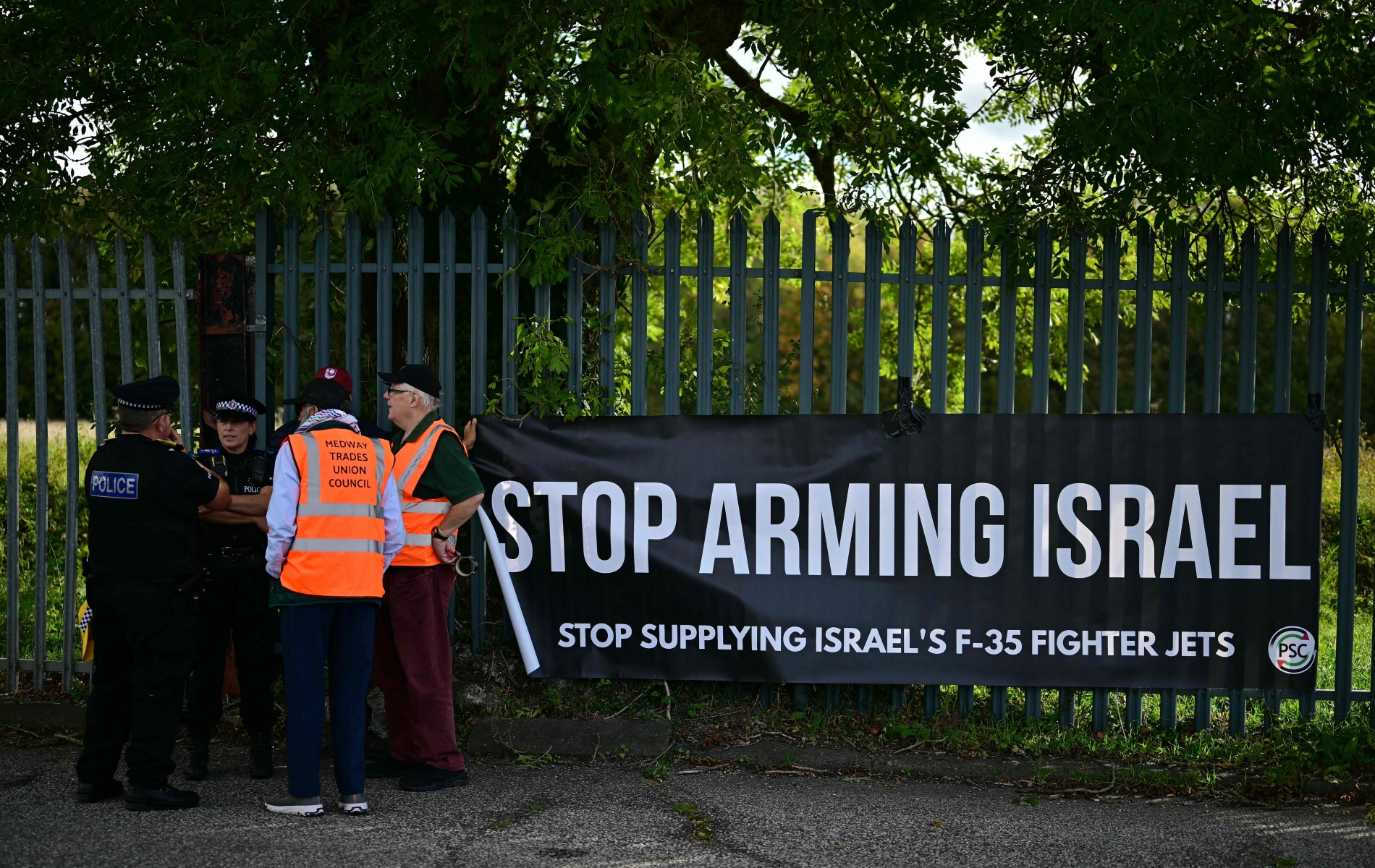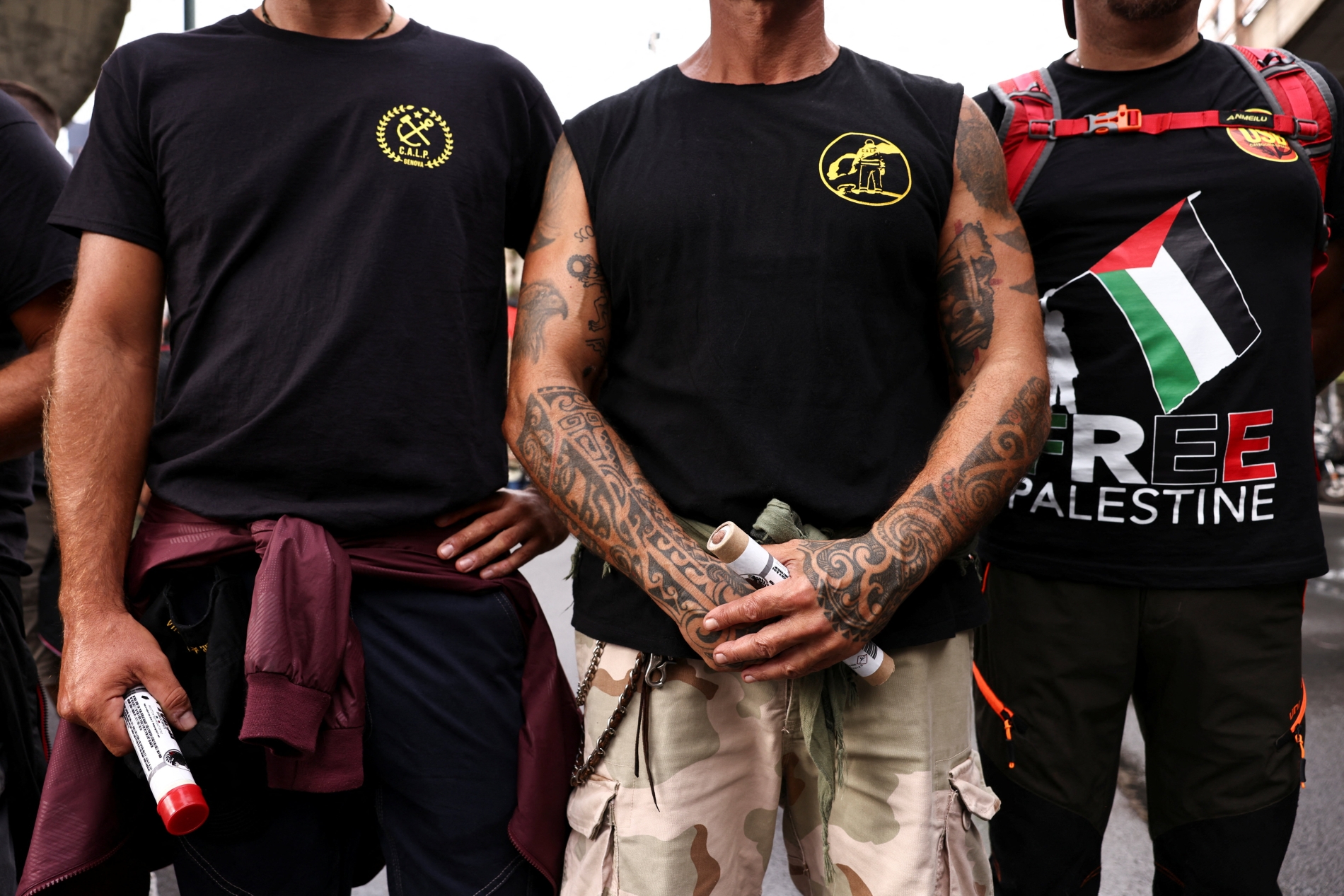Israeli Prime Minister Benjamin Netanyahu recently said his country should reduce its dependence on trade with other countries, as the state faces a growing threat of economic sanctions.
“We will increasingly need to adapt to an economy with autarkic characteristics, the word I most hate,” he said, evoking a potential future in which Israel will have to be economically self-sufficient. “There’s no choice. In the coming years, at least, we will have to deal with these attempts to isolate us.”
It was a rare acknowledgement of the diplomatic fallout from Israel’s war in Gaza. But Israel’s options for navigating economic isolation are more constrained than Netanyahu acknowledges.
The premier’s vision—and other recent speeches—drew widespread criticism in Israel, including a reaction from markets, which dipped following his words, although the premier’s office later said that he was only referring to the self-sufficiency of arms production.
“Autarky is malarkey,” said Amir Mizroch, an Israeli communications advisor and former regional technology editor at the Wall Street Journal, “It’s great to be able to say, ‘we need to make our own bunker-buster bombs.’ But how are you going to build the factories? How are you going to get them all the parts, for instance, for the tanks that have been blown up or for drone production?”
“We are not a manufacturing country,” Mizroch added. “If you want to have a super Sparta that is able to stand by itself and be super strong, this country is not designed for it.”
Israel’s defence exports hit a record $14.8bn last year, driven largely by missiles, rockets, and air-defence systems, which collectively made up around 48% of export volume.
More than half of the country’s defence contracts were with Europe, but Israel is facing severe diplomatic and commercial pressure from the bloc. In mid-September, the European Commission proposed to suspend parts of a free trade deal known as the European Union-Israel Association Agreement, which entered into force in 2000, focusing on goods rather than services.

The bloc is Israel’s largest trading partner. The proposed tariff measures would affect around 37% of Israel’s total exports to the EU—worth around €16bn ($18.7bn) in 2024—to impose some €220mn euros ($257.7mn) in additional costs.
The EU is also moving to suspend €14mn euros ($16.4mn) in direct support for various Israeli projects, but will keep in place EU funding for Israel’s Yad Vashem Holocaust memorial as well as peacebuilding initiatives. The measures would only enter into force if all member states agreed to them.
International cooperation, as well as business and research partnerships with Israel’s cherished technology sector, are increasingly under pressure. In June, the Erasmus University in Rotterdam, Netherlands, suspended future research collaborations with three Israeli universities. Some European pension funds have divested from Israeli companies or international companies whose products are used in Israel due to human rights concerns.
In mid-September, the Italian Adriatic port of Ravenna refused entry to two trucks, said to be carrying explosives to Haifa in northern Israel, as protests mounted among Italian dockworkers and other labour groups opposed to the offensive in Gaza. This followed similar actions to prevent arms shipments to Israel by dockworkers in other European countries, such as France, Sweden, and Greece.

In late September, Microsoft cut off some services to a unit of Israel’s Ministry of Defence after an investigation found that its technology had been used to conduct mass surveillance on people in Gaza. In addition, the country’s existing defence production lines depend on imported components and materials, while its exports fund research and development.
“Programmes like Arrow and David’s Sling rely on US-Israeli co-production and multinational supply chains,” Mizroch said. “Production lines depend on imported energy, alloys, electronics, and propellants. Cut Israel off from markets and inputs, and you starve the very complex you want to scale.”
“Even if and when these factories are built, good luck keeping them all supplied and protected in a country the size of New Jersey, surrounded by enemy missiles and drones,” he added.
Michael Milshtein, the head of the Palestinian Studies Forum at the Moshe Dayan Centre for Middle Eastern and African Studies, said that this “Sparta vision” reflects the views of a minority of Israelis. But they are the ones heavily influencing government policies and the conduct of the war in Gaza.
“The majority of people in Israel are terrified by this idea of being Sparta: an isolated, kind of pariah state, which is always in an existential phase of ongoing warfare,” Milshtein said.

Read more: Is the war in Gaza turning Israel into a pariah state?
However, he added that the cultural values of part of the Israeli population, primarily represented by the Religious Zionism party of Finance Minister Bezalel Smotrich, support the isolationist idea because their only goal is the creation of a Jewish state encompassing the land from “the river to the sea”—a religious state governed by religious principles.
These views are based on the premise that global public opinion can be ignored and that international criticism and even isolation are a price worth paying to realise the vision of a Greater Israel. Most Israelis would rather live in a “normal country,” said Milshtein, enjoying the respect of the international community—a country whose prosperity is based on an open economy, not in “a sort of North Korea.”
Milshtein said he fears that an international tsunami is getting closer to his country. “Many Israelis are beginning to understand that this won’t be limited to politics and international relations, but that they will start to feel it in their own daily life, from the price of food to the capacity of getting out of the country,” he said.
Israel imports far more goods than it exports, but its exports of services make up for the trade deficits in goods, yielding a modest overall trade surplus of 2.4% of the country’s gross domestic product in 2024, according to the latest World Bank data.
Energy is particularly problematic: Israel is self-sufficient in natural gas but imports basically all the oil it needs. Israel is also heavily reliant on food imports, which comprise more than 90% of the country’s grains and fish; more than 80% of legumes, seed oils, peanuts, and nuts; and more than 60% of beef, according to the country’s Agriculture and Raw Food Security Ministry.












